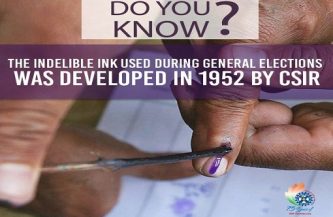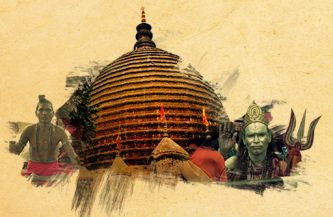Case Study: MyGov enabling participative decision making – Budget 2015

Noted social activist Michael Moore was at his pithiest best while summing up the essence of democracy: “Democracy is not a spectator sport, it’s a participatory event. If we don’t participate in it, it ceases to be a democracy.”
While commentators have, over the centuries, debated the multiple benefits of democracy over other forms of governance, it is its participatory nature that has almost unanimously been recognised as the most outstanding feature. Democracy, in its normative form, while electing a leader through a transparent process, expects that leadership to make decision making a participative process where citizens have an important pro-active voice in policy making. But what is it about participative leadership that makes it so attractive?
First, involvement in decision-making improves the understanding of the issues involved by those who must carry out the decisions. This means the actual effect of the policy is factored in at the stage of policy making itself thereby insulating it from remaining a mere academic exercise. Second, people are more committed to the actions flowing from the policy where they have been involved in the relevant decision-making. The citizens, who will actually be affected by the policy, have become a stake holder in the policy so framed rather than it being handed top down, and thus have more stakes in making the policy work. Third, people are less competitive and more collaborative when they are working on joint goals. Fourth, when people make decisions together, the social commitment to one another is greater and thus increases their commitment to the decision.
Mahatma Gandhi, one of the greatest personalities of twentieth century, was among the first to understand the power of such participative decision making process to mobilize public opinion and this is what contributed to his enormous achievement of converting the freedom movement into a mass movement. Prime Minister Narendra Modi, inspired by the great Mahatma, has often spoken of learning from this great heritage and deploying it in modern context of converting the development and governance paradigm into a mass movement.
It is with this ambition that MyGov was launched by the Prime Minister on 26th July 2014 as a citizen online engagement platform. The avowed aim of the platform was to achieve the following purposes: A) Pro-active citizen participation in policy making; B) Citizen participation in governance tasks; and C) Volunteer participation to achieve synergy in the ideas and discussions in online world with action on the ground.
One of the conscious decisions taken during the conception stage of MyGov platform was to have no activity on MyGov without a buy-in by a relevant department or ministry of the government of India. This was done to ensure that all discussions and tasks on MyGov would have a defined closure point and therefore the valuable time that citizens spend on MyGov would be tied up with a clearly defined proposed action of the government. This way, MyGov would become a useful platform for citizens, retaining the flavour of a free flowing online general discussion forum, while avoiding the trap of only remaining a discussion forum.
This conceptual clarity at the level of the head of government, with a clearly defined mandate to ministries and departments to factor-in the citizen suggestions in discussions and tasks they have initiated on MyGov, in the eventual policy, program or schemes they frame, has resulted in much success for MyGov since its launch. The names of the very popular Pradhan Mantri Jan-Dhan Yojana and the now ubiquitous logo for the Swachh Bharat Abhiyan were generated by contributors on MyGov. The Prime Minister himself has used the MyGov platform to regularly source citizens’ ideas and aspirations for his very popular, monthly “Mann ki Baat” dialogue with citizens.
The confidence generated by these early successes encouraged both ministries and the citizens to engage in crowd sourcing for even broader participation. The Ministry of Railways and the Ministry of Finance, thus initiated discussions seeking ideas from citizens for consideration for the Railway Budget and the General Budget respectively. In what was clearly a first, crowd sourced ideas from citizens, generated on MyGov, became actual government proposals in the respective budgets for the year 2015-16. The implications of a direct platform for citizens, where they could articulate their aspirations and needs to the government, without any intermediary or middlemen, can be seen in some of the far reaching ideas that became actual budget proposals.
For the Railway Budget, suggestions that have been incorporated in the actual proposals include proposals to fit bio-toilets and vacuum toilets in rail coaches to improve cleanliness; providing concessional e-tickets to differently-abled passengers; provision to order food online at the time of booking of tickets through IRCTC; integrating popular private food chains with the pantry network of railways; installation of digital display networks on platforms to provide real time information to citizens and the involvement of ISRO for providing audio-visual warnings to passengers at unmanned level crossings by using geo-spatial technology. A more detailed description of MyGov user suggestions reflected as actual proposals can be read here.
In the General Budget for 2015-16, some of the innovative proposals that have been incorporated include the proposal to enable monetization of gold and launching of sovereign gold bonds; proposal to abolish wealth tax and simplify tax structures; special tax incentive for promotion of Yoga; proposal to make sharing of PAN number mandatory for cash transactions above a specified value; 100% tax benefit for contributions to Swachh Bharat fund; utilization of vast postal network for improving access to banking in remotest corners of India and the proposal to introduce a law to penalize non disclosure of foreign bank accounts and to tackle benami property holdings in India. A more detailed description of MyGov user suggestions reflected as actual proposals can be read here.
These suggestions were thought of by the citizens themselves. They are aspirational in nature in some cases and practical in others. A gold monetization scheme can have transformational affect on the economy. Integrating of popular food chains with rail pantry network and simultaneously enabling the citizens to order food online would, while appearing as simple suggestions, enormously change the passenger experience for those who are travelling by rail network.
The implications of such participative decision making process are enormous. Development as a paradigm of general national discourse is a rather abstruse concept. However, if the broad long term governance framework can be converted into an easily identifiable specific time bound programs, with which the citizen can identify themselves in the immediate term, then it is easier to weave it into the national fabric. The General budget each year is an important policy document of the government, detailing the framework by which the government intends to manage the economy in the medium to long term. However, what is in it for me in the next budget is the most pertinent question by citizens in the build up to each year’s budget. The art of socially and emotionally investing the people in the governance paradigm is to somehow interlink these two strains. With MyGov platform acting a bridge, the citizen now has not to wait till the end of budget process to find out what is in it for them but can pro-actively help in deciding what do they want from the budget. One simple exercise of participative decision making and the budget becomes not a government’s document alone but a document of the people. The emotional commitment gets built-in and the abstruse development paradigm is on its way to becoming a participative mass movement. The platform that is enabling this is the MyGov platform, translating the vision of Prime Minister Narendra Modi into a reality.
Total Comments - 103
Leave a Reply
You must be logged in to post a comment.





 Login
Login
I really admire the initiatives taken by govt to promote tourism in India.
Due to the ruling of using only air India for LTC 80;max govt officials are not able to visit the tourist destination. Air India seats get fully booked approx months in advance. It is recommended that govt officials be allowed to book tickets from other airlines once seats are over in air India. This way we can look after air India and promote tourism as well
Regards
Deepak
Govt can save Rs 1,000s of crores annually, also benefitting millions of rural families with cows, by giving away Biogas systems FREE, just once, costing about Rs 7,200 (about 3 years subsidy per LPG holder). Beneficiaries save money on fuel, Govt saves subsidy and Foreign Exchange, this can reduce up to 3.5% of GHGs (a huge bargaining point in Climate Change Talks), this will improve the quality and health of poor people’s lives being a clean gas, and will contribute to ‘Swach Bharat’ program.
Remove all Subsidies.
Raise the Income Tax free limit from 2.5 lacs to 5.00 lacs.
Rebate limit under sections of 80C to be raised from 1.5 lacs to 3.0 lacs.
Review and enhance all the limit after every 3 years
Treat all Income equally for Income Tax, Rebates, Depreciations etc. Allow rebates/depreciations in Income Tax for purchase of Property, Vehicles, etc. for Salaried class also.
one time taxation for various products being sold
Cashless payments be taxfree
will automatically comedown once our IT rates are broughtdown and IT dept is strengthened. The 2nd cause is VERY DANGEROUS and need to be addressed on WAR FOOTING. I suggest (1) Use RFID technology in Currency notes for fool-proof identification (2) Issue 1000/500/100 rupees currency every 2nd/3rd/5th year with new security features. Old currency particularly 1000/500 currency to be exchanged only through BANK ACCOUNT. This will NOT give any time for Counterfeit activities.
Black Money can be either (1) Assessees not fully disclosing their earnings in their return to avoid Income taxes and use this undisclosed money to pay in Black for acquisition of properties, jewelleries and other wasteful expenditure and (2) money created be Counterfeit notes printed and distributed by Enemy countries to destabilise us and also creating assets by over/underinvoicing import/export trade & hawala trade etc. While the former cannot be excused and need preventive action, this …..
This regarding extension of Tax Audit & ITR for AY15-16. CBT used to provide e-forms for above in the last of July. Assessee hardly get 60 days for above. While these e-forms are to be make available in the begging of April each year. For AY15-16 various High Courts have announced the verdict and asked to CBDT to extend the above of filling by 30 Oct 15. But CBDT is not doing so. It de-popularizing the BJP Govt & PM and putting negative impact socially, politically & in business community.
Railway ticket rate must be based on length to be traveled not section(eg:- trivandrum – kochuveli -2 kms, thenkasy – sankaran koil :- 25 kms rate difference must be there)(it must be less than bus fair now the difference is unimaginable.
A) those who want to sell land or property must register it @ register office with price, time with in which they need transaction, area and further details, condition (1) property/ object’s minimum price is the quated price(2) buyers has to send there offer thrugh regiatar (3)maximum amount has no limit if govt want (4) transaction via bank only/ advantage:-no black money, a large no of buyers, tax for payment, transparency in the matter of transaction ( govt land can’t be transacted
Income from Savings (Fixed/Savings) Cap need to be increased to motivate saving on account of decreasing interest rates.
Central need to address the issues on Road Tax issues of Transport Department(Drive Without Borders)
Income Tax need to be abolished for salaried class
Income tax for individuals (except business with turnover more than 1 cr.) should be abolished.
This is a one time bold step which will ensure growth in long term.
Issue a color card with unique Id to every citizen of India accordance to their financial position e.g. yellow card issue to BPL Person, Red Card to upper Poverty line but below specified income. By which Govt. Facility provide to person accordance to their Card and charge a nominal value as per his financial status.
So to do, Providing Free of Cost facility to all person will be terminated and some earning increase to Govt Department,
e.g. govt hospital provide free of cost facility